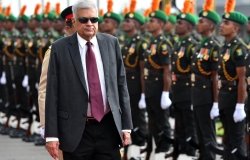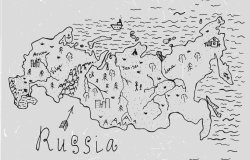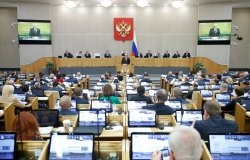Changes Ahead in Ontario: An analysis of the October 2 Provincial Election
The Canada Institute welcomed two experts on Ontario politics to analyze the Liberal win in the October 2nd Provincial Election, and give an idea of what might lie ahead, particularly in the realm of Canada-U.S. relations.
Overview
On Thursday, October 2nd, voters in the province of Ontario (with a population of more than 11 million and home to about one in three Canadians) elected Liberal Leader Dalton McGuinty and his party in an electoral sweep that handed them one of the largest majority governments in the province's history.
The Canada Institute welcomed two experts on Ontario politics to analyze the Liberal win and give an idea of what might lie ahead, particularly in the realm of Canada-U.S. relations. David Docherty, chair of the political science department at Wilfrid Laurier University in Waterloo, Ontario and frequent media commentator for the Canadian Broadcasting Corporation joined David Pond, Professor of Political Science at the University of Toronto Mississauga. Pond was for 14 years a non-partisan Research Officer in the Legislative Research Service, Ontario Legislative Library, and is one of the foremost experts on Ontario public policy.
In contrasting this year's contest to the 1999 campaign where McGuinty lost to Conservative Mike Harris, Docherty said that public policy issues were hotly debated in this election, the main issue being tax cuts promoted by the Conservatives. The New Democratic Party sought to increase corporate taxes as well as income tax from people making more than $100,000 a year. The Liberals, though, appealed to the middle class, saying they wouldn't cut taxes nor would they increase them.
According to Docherty, dissatisfaction among the electorate was such that the Liberals had only to show up. The Tories were disorganized with a record of some highly visible scandals and missteps (the Walkerton water tragedy and coverup, tabling the budget outside the legislature in a party supporter's car-parts plant) which had a negative effect on voters. The win is significant because, as Docherty said, "in Ontario, Liberals lose elections," this being only the second time since 1938 that the Liberals have been elected to form a majority government.
David Pond examined the Tory plan to cut taxes and remarked that the party wasn't sure how far things could go without cutting necessary services. There would have been a difficult balancing act in matching tax cuts in adjacent Great Lakes states without compromising what the Tories defined as public goods (education, health care).
Pond claimed that the Liberals in effect endorsed the tax cuts implemented by the Tory government, and by agreeing not to increase taxes, were in fact endorsing the shift of public to private that had been set out by the previous government. He added that there was quiet business support for the Liberals' platform which called for a re-investment in public goods. The Liberals are likely to change the campaign finance act to cover additional spending areas not included in the original act.
What changes lie ahead? Planned tax cuts and credits will be scrapped (private school credits, mortgage interest deductibility) and the tobacco tax will likely go up. Competition with the United States will become an issue, particularly with a stronger Canadian dollar, which may hurt Ontario exports. With Liberal governments now in Ontario, Quebec, and in Ottawa, there will likely be more cooperation for the removal of interprovincial trade barriers; the tone of the relationships will also change (it was claimed that the federal cabinet loathed the Ontario Tories). Unlike their federal counterparts, the Ontario Liberals will have a good relationship with the United States, according to the speakers. McGuinty has a much stronger leadership with his caucus than he was given credit for, and his will not be government by consensus.
Discussion concluded with the comment that in Ontario, the center has shifted back to the center.
David N. Biette, Director, Canada Institute
202-691-4133
Documents & Downloads
Hosted By

Canada Institute
The mission of the Wilson Center's Canada Institute is to raise the level of knowledge of Canada in the United States, particularly within the Washington, DC policy community. Research projects, initiatives, podcasts, and publications cover contemporary Canada, US-Canadian relations, North American political economy, and Canada's global role as it intersects with US national interests. Read more
Thank you for your interest in this event. Please send any feedback or questions to our Events staff.










